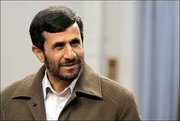Former US Secretary of State Henry Kissinger has said that Washington will be disappointed if the Indo-US nuclear deal were to be shelved at this stage. Kissinger also said that if the nuclear deal falls through, then it could affect India's chances of getting a United Nations Security Council seat and it will instill doubt towards India in the minds of US policymakers.
Karan Thapar: If India backs out of the Indo-US nuclear deal, what would be the reaction in Washington and other major capitals of the world—that’s one of the issues I would raise today with Henry Kissinger, former US Secretary of State and someone they consider the best known holder of that post for perhaps a century.
Dr Kissinger, if the Indo-US nuclear deal goes through how important a landmark it would be in the relationship between the two countries.
Henry Kissinger: I think it would be an important landmark. It would signify India has emerged from its isolation of 30 years, and that in a key field of activity—the nuclear field—it is now re-entering the international community in a cooperative manner. It would signify a role for India on a more global basis than it has performed before.Karan Thapar: So this is the sort of recognition India has arrived. Could any other country, other than America, give this to India?
Henry Kissinger: Well, there are two separate problems. Technologically there may be other countries that may give a part of it, and where one could piece together various aspects from a number of other countries. Politically, in relation to the Nuclear Suppliers Group (NSG) and to the IAEA (International Atomic Energy Agency), I think cooperation between India and the US would facilitate matters in a degree that I don’t believe any other cooperative relationship would.
Karan Thapar: For the sake of an Indian audience, which may not know the details, how much effort would have the Bush administration would have put in, how much political goodwill would they have used to overcome the powerful non-proliferation lobby in America? Henry Kissinger: First, I would like your audience to understand that I am not here to promote a particular agreement. This is an important agreement, which will have to be ratified Indian internal processes for Indian reasons. America has its reasons—and then they have to be compatible.For the American administration it was a very important step. India had been under sanctions, which had developed under previous administrations in America.Therefore, to change the mindset in which an exception is made for India—to some extent—on the proliferation issue, and in which from a position of ostracizing India one moves to cooperation with India that had to overcome significant domestic difficulties—both among experts and within the Congress. The Bush administration considered that a major initiative, of which they are proud. Not primarily for the nuclear issue, but for the cooperation between our two countries.
Karan Thapar: Given what you are saying, if India were now in this late stage to back off from the deal and shelve it, what would be the reaction in Washington?Henry Kissinger: Two separate reactions: first, India will still be considered important and serious efforts would be made to continue a close relationship. But theoretical desires for close relationships would have to be expressed in concrete measures in some point. And undoubtedly there would be a mixture of disappointment and also whether a question to what extent one can calculate Indian reactions to negotiations that are going on other subjects. I think these two would be the two dominant reactions.
Karan Thapar: Would there be voices in America that would hereafter question India’s reliability as a strategic partner? Would there be people who will say ‘they went so far down the road and then they backed off, can we trust them next time around.’
Henry Kissinger: There will certainly be people who will make that argument. There are others would say the relationship is very important and we have to carry on. But it would certainly, in an intangible way, affect calculations because when an American leader goes down a certain road he stakes his prestige on the ability to get it executed, so in that sense it would be a setback. But I want to stress, India must ratify this or not for its own reasons, not for American reasons.
Karan Thapar: But given that President Bush has staked his credibility on pursuing this deal and delivering it, if India is then seen not delivering on its commitments that would be a setback and that would perhaps irritate members of the Bush administration?Henry Kissinger: It would certainly be a disappointment, because the Bush administration has put a lot of effort behind this. But India must do this for its reasons as I have said before, and I think it’s important for both countries to proceed. India and the US have parallel goals in many areas, and therefore it would be unnatural to keep India under a sanctions regime and exclude it from one of the major areas of technological achievement. And this is why this effort was made: to bring India or to enable India to enter this field on a bigger scale than before.
Karan Thapar: India has been canvassing in major international capitals for almost two years to get support for this deal and the Prime Minister has sent special envoys to a variety of countries. Would they share the dismay and disappointment?Henry Kissinger: Well, they would wonder what is going on and what that reflects? Does that reflect an immediate internal Indian problem or does that reflect a fundamental Indian choice, which makes it difficult to cooperate with India on these issues?
Karan Thapar: And those are serious questions that would be raised?Henry Kissinger: Those are issues people would have to answer for themselves.Karan Thapar: And what impact would it have on India’s ambition to be a permanent member of the UN’s Security Council and to be recognised as one of the great powers of our time?
Henry Kissinger: To the extent I am an expert in this field, I would anyway favour India joining the Security Council because of the magnitude of the country. But it would certainly be one argument that opponents might use in what is any event a complicated issue, because of issues of veto, expansion of Security Council and so forth.Karan Thapar: And, in a sense, it would feed India’s enemies. It would create doubt where doubt is needed, and therefore would be unhelpful.
Henry Kissinger: It would give an argument to people who would not like to see an expansion of India’s role or who simply don’t want the Security Council changed for other reasons because it is difficult to change any way.
Karan Thapar: The Left in India say that if this is such a good deal, then it can safely be left to the next American administration. If the next American President is a Democrat—and you know the Democrats quite well—what are the chances that he or she might actually choose to renegotiate this deal?
Henry Kissinger: Well, there are two separate problems. One is what happens if this agreement is delayed, or put off? The second is which of the political parties in America are likely to act? The first thing is the American political process—anything that is not ratified by next July is unlikely to be dealt with before 2009. It is then unlikely to be dealt in 2009 first, because a new administration has to reorganize itself. There are 3,000 jobs that have to be filled, and the Congress has to get organized. That in any event, even if the Republicans come in, would be a delay of at least a year and half.Secondly, it is broadly true that the anti-proliferation group is stronger in the Democratic than in the Republican Party. So a Democratic president would have to deal with that group—that’s another delay. I don’t want to say that friendship with India is a monopoly of the Republican Party, but given the present political constellation what doesn’t happen within this current timeframe will be delayed to two and probably more years.Karan Thapar: You are also suggesting—aren’t—you that if there is delay there is a real likelihood that terms that would eventually be offered to India might not be as good as those on offer today?Henry Kissinger: There will be a need to take into consideration the position as it applies to the new administration, of course.
Karan Thapar: Let's broaden our discussion. Much of the opposition to the deal in India arises out of the fear that embracing America too closely might be dangerous for Delhi to do. In other words, America is a friend best kept at a judicious distance. How do you respond to that sort of thinking?
Henry Kissinger: Well, I belong in America to the realist school of foreign policy. I think countries should do things not for sentimental reasons, but considering their own national interests. And - I expect that from my country - and I expect that from India. So, I don't look at this as embracing the United States. I look at this agreement as something that is in the Indian interests but that enables a common interest to be more easily realised by establishing a pattern of co-operation. But the judgement should be done on the basis - is it in India's interests? Not "I'll be embracing the United States"; it should be done on its merit.
Karan Thapar: The problem is, when you talk about a hard-headed realistic attitude, India's former national security advisor, Brijesh Mishra, told me in an interview a couple of months ago, that there's a real danger, that if India goes down this road and enters the deal, it will be under constant pressure from Washington to tow an American line. And the sort of issues he mentioned were Iran, Iraq, even the general attitude to democracy, the Middle-East... Would America look for political quid pro quos?
Henry Kissinger: I would be - America certainly, as any great country, will try to get Indian support on the issues that concern America - that's a tribute to India's importance. Will it try to blackmail India by withholding technical co-operation? That would be very foolish. And, in my view, hard to conceive, because once one does that - once - the relationship is broken. And we should try to get co-operation with India on Iran and similar matters, but on its merits, not by blackmail.
Karan Thapar: Let me quote to you what Tom Landross said last year. He said, "India must reassure Congress and the American public that it knows full well what it means to be a strategic ally of the United States." To Indians here, that sounds like a not-so-subtle threat.
Henry Kissinger: The only way great countries can cooperate is if they genuinely believe they're pursuing common interests. If one country blackmails the other, even if it succeeds on one issue, it mortgages the future. The problem between India and the United States is how do we conceive our objectives, say, between Singapore and Aden in the whole region. Are there enough common interests to pursue parallel policies? If those interests don't exist, we won't create them through a nuclear agreement, and that is the fundamental issue in Indian-American relations and why I believe that we are moving into a period wherefore each, for its own reasons, will conclude that on many issues cooperation is desirable, not blackmail.
Karan Thapar: So, you're saying to Indians who worry about the embrace, 'Don't worry about imaginary ghosts.'Henry Kissinger: I say to India, “Think through what your objectives are and listen to what we say our objectives are. And then decide whether they are sufficiently parallel.” And you have certainly demonstrated over the decades that you are not embarrassed to disagree when you do.
Karan Thapar: Quite right. You're also saying, “Don't underestimate your capacity to stand up to America.” There is another fear that is expressed and this time the Bharatiya Janta Party - the main opposition party. They say that the deal is, in fact, an attempt to trap India by the backdoor into the NPT. It is an attempt to emasculate India's strategic nuclear weapons programme.
Henry Kissinger: There's no doubt that there are people in the United States who have that view. The Non-Proliferation lobby has its strong view along that line. But in this agreement, the argument that is made in America is the opposite - that it enables India to pursue a strategic programme with much more flexibility. And that is the argument that opponents in America make.
Karan Thapar: So, in other words, once again, “Don't listen to every voice and believe it; judge the Agreement on its merits; think carefully about the conclusions you're coming to because you might be frightening yourself where there's no need to be scared.”
Henry Kissinger: I think the agreement ought to be judged on its merits, on its technical merits, and on its long-term foreign policy merits. And the United States has gone through similar process and has resolved to be in favour of it. And now it's India's turn to complete its process.
Karan Thapar: Very quickly before we end this interview, as a foreign policy analyst, what would you say to a party like the Bharatiya Janta Party which four years ago, when it was in power, used to call America "India's natural ally"? Today, four years later, they want to turn their back on the nuclear deal. What would you say to them?
Henry Kissinger: Well, I will be seeing some of the leaders of that party. I will try to avoid getting involved in the debate on the deal. I would talk as I did then, and as I do to the current government: "Are there parallel interests between India and the United States?" and, "Let's look at this agreement on how we best realise these”, and, "What is the impact of India turning its back”, with arguments like the ones you have mentioned to me, and, "You should make that choice, not us".
Karan Thapar: And would you make the same message to the Prime Minister were you to meet him, would you say the same thing to him?
Henry Kissinger: I say the same thing to everybody.
Karan Thapar: "Think about your interests carefully, judge what you are doing and worry about the consequences that you may not intend."
Henry Kissinger: Well, I have now dealt with India for many decades and India has never been lacking making a hard-headed assessment of its long-term interests. That has been one of the impressive aspects of the Indian performance, and I'm sure that will continue.
more
Sunday, October 28, 2007
Subscribe to:
Post Comments (Atom)



























No comments:
Post a Comment